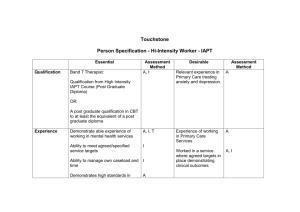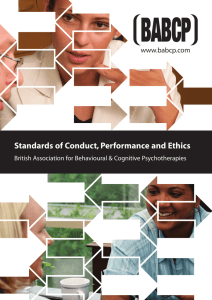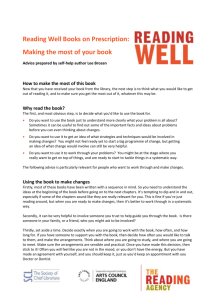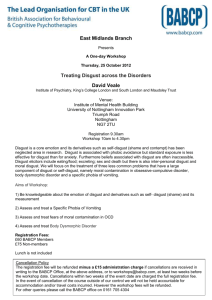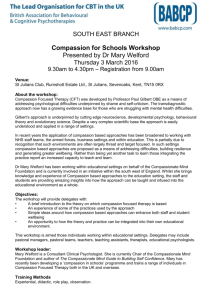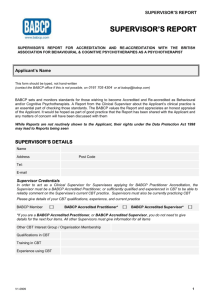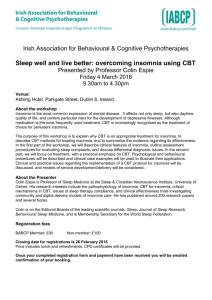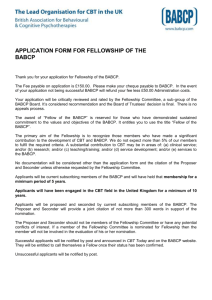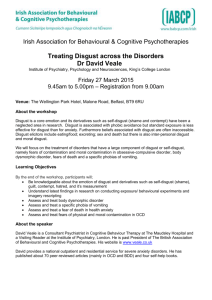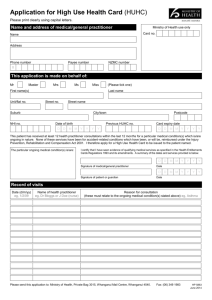Guidance on KSA for entry into High Intensity Training without
advertisement
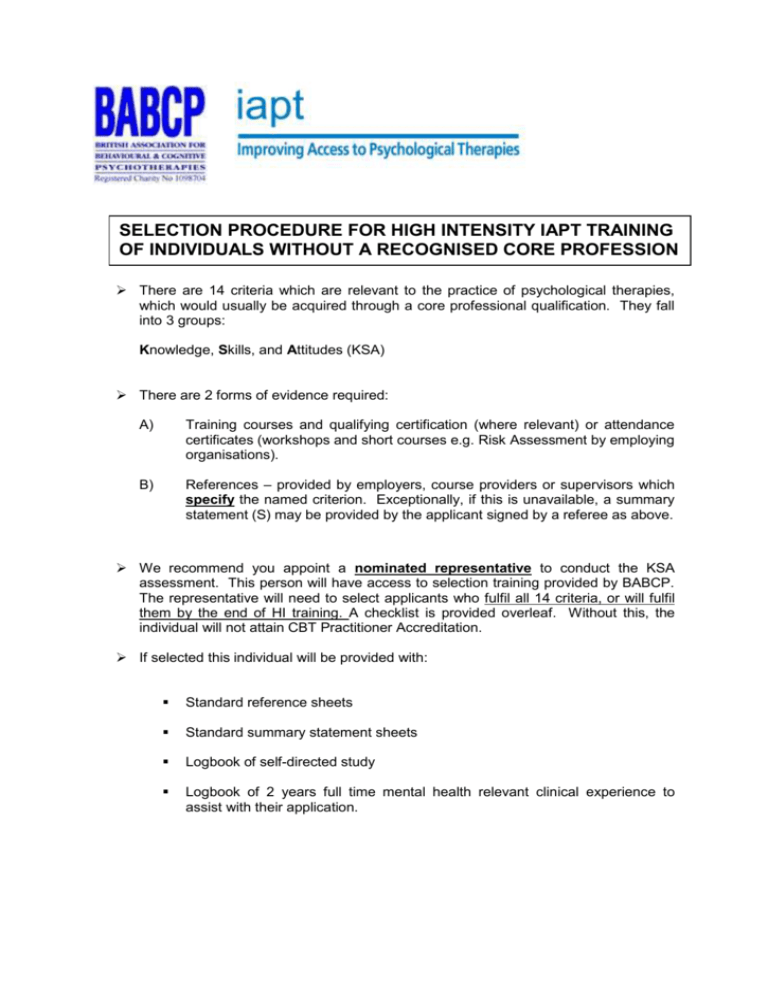
SELECTION PROCEDURE FOR HIGH INTENSITY IAPT TRAINING OF INDIVIDUALS WITHOUT A RECOGNISED CORE PROFESSION There are 14 criteria which are relevant to the practice of psychological therapies, which would usually be acquired through a core professional qualification. They fall into 3 groups: Knowledge, Skills, and Attitudes (KSA) There are 2 forms of evidence required: A) Training courses and qualifying certification (where relevant) or attendance certificates (workshops and short courses e.g. Risk Assessment by employing organisations). B) References – provided by employers, course providers or supervisors which specify the named criterion. Exceptionally, if this is unavailable, a summary statement (S) may be provided by the applicant signed by a referee as above. We recommend you appoint a nominated representative to conduct the KSA assessment. This person will have access to selection training provided by BABCP. The representative will need to select applicants who fulfil all 14 criteria, or will fulfil them by the end of HI training. A checklist is provided overleaf. Without this, the individual will not attain CBT Practitioner Accreditation. If selected this individual will be provided with: Standard reference sheets Standard summary statement sheets Logbook of self-directed study Logbook of 2 years full time mental health relevant clinical experience to assist with their application. CRITERION CHECKLIST CRITERION Knowledge - K QUALIFICATION EVIDENCE 1 Life Stages and Human Development Knowledge of Life Stages and human development 2 Health and Social Care Approaches Knowledge of the delivery Training Course or Reference and legislation of health and social care through statutory and non statutory bodies in the UK, e.g. Mental Health Act, National Service Framework 3 Psychopathology/diagnostic skills Demonstrate an accurate understanding of psychopathology and problem definitions 4 Models of Therapy Knowledge of a variety of Training Course or Reference theoretical models of intervention e.g. psychodynamic, biological, pharmacological, systemic and family, cognitive/behavioural. √ Training Course or Reference Training Course or Reference Skills - S 5 Competency in key relationship skills E.g. Active listening, warmth, empathy, trust and rapport building. Reference 6 Maintain and manage records and reports. Maintain and manage records and reports. Reference 7 Communication with services/colleagues. Ability to maintain effective communication with referrers, colleagues etc. Reference X 8 Awareness of risk Demonstrate a high level of awareness of potential risks to and from clients based on an ability to assess the probability of self harm, suicide, hostility neglect, violence, exploitation, and of child protection issues, with a commensurate knowledge of their responsibility to respond to these. Training Course and Reference 9 Comprehension of research Demonstrate critical skills in reading, analysing and discussing published research studies Training Course and Reference 10 Commitment to Ethical principals Practice in an ethically appropriate manner with clients and colleagues e.g. confidentiality, nonexploitation. Training Course and Reference ATTITUDE - A 11 Suitable at a personal level e.g. CRB checked Reference 12 Enquiring mind Approaches practice with curiosity and a spirit of enquiry. Reference 13 Self evaluation and reflection Capacity to reflect on and evaluate own values, priorities etc. Reference 14 Receptive to scientist practitioner approach Receptive to scientist practitioner approach and empiricism. Reference TOTAL √ Further information on KSA Criteria and selection is available from: BABCP Victoria Buildings, 9-13 Silver Street, Bury, BL9 OEU Tel: 0161 797 4484 babcp@babcp.com www.babcp.com
